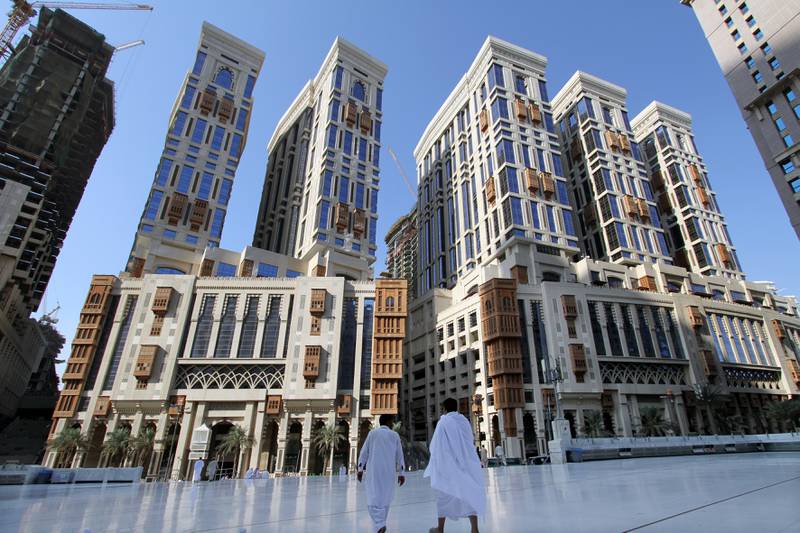Saudi Arabia’s Jabal Omar gets approval to restructure $800m government loan

Jabal Omar Development Company, one of Saudi Arabia's biggest listed developers, received approval from the Ministry of Finance to restructure a 3 billion Saudi riyal ($800 million) government loan as part of its financial transformation plan.
The agreement will have several "immediate and significant long-term positive impacts" on the company’s financial position, allowing it to accelerate the pace of development of its Jabal Omar master plan and supporting the government's goal of hosting 30 million pilgrims by 2030, it said on Sunday.
"This is a major milestone for our capital structure optimisation plan that will set us on a more sustainable course towards completing the Jabal Omar master plan," Khalid Al Amoudi, chief executive of Jabal Omar Development Company, said. "With the gradual reopening of the kingdom to pilgrims post-Covid and our now more stable financial position, we are more confident in our ability to ramp up operations and construction mobilisation on site."
Jabal Omar is developing a multi-use, mega-project across 2 million square metres overlooking the Grand Mosque in Makkah. The property company, which owns a number of mixed-use towers close to Makkah's Grand Mosque, said the 3bn riyals Islamic loan owed to the government was received in 2011.
Under the new agreement with the ministry, the loan will be split into two tranches. The first 1.5bn riyal tranche will have its maturity extended by nine years to 2031, from 2022 previously. The deal also includes the waiver of more than 440m riyals in outstanding interest payments up to November 14, 2021, as well as lower interest rates for the extended debt.
The second tranche of 1.5bn riyals will be converted into a junior perpetual Islamic financial instrument with an "indefinite maturity", the company said.
This agreement will have the immediate effect of reducing the company's total liability by 1.94bn riyals, it said. The 440m riyals in outstanding interest payment that has been waived will be reflected in its fourth-quarter income statement, it said.
In the medium-to-long-term, the agreement will have a "significant positive impact" on the company's finances by deleveraging its balance sheet and improving its debt-to-equity ratio, improving its cash flow profile.
It will also enable the company to meet its other debt obligations, reduce its total debt servicing levels, improve its capital structure and allow it to "optimise the funding mix" required for the completion of the outstanding phases of its property master plan, it said.
